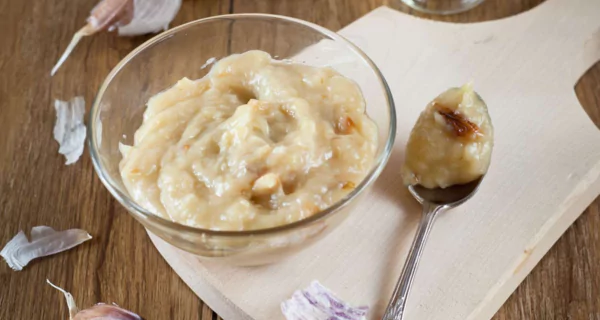Last Updated on: 16th December 2025, 11:03 am
To sleep with a toothache, elevate your head, use a cold compress, rinse with salt water, apply clove oil or garlic paste, and take over-the-counter pain relievers. These methods offer temporary relief until you can see a dentist.
7 Expert Tips to Sleep with Toothache
Struggling with toothache at night? Discover 7 expert tips to sleep with toothache comfortably. Beat the pain with simple at-home remedies and expert advice.
Dealing with a toothache can be challenging, especially when it strikes at night. The throbbing pain, often aggravated by lying down, will disrupt your rest and leave you feeling exhausted the next day. Understanding the reasons behind this discomfort and exploring practical strategies to manage it can make a big difference. Let’s explore the common causes of nighttime tooth pain, how to sleep with toothache, and simple remedies that may help you sleep more peacefully.
Why does toothache get worse at night?

Toothaches often seem more intense at night, and this heightened discomfort is not just in your imagination. Several factors contribute to this phenomenon, making it particularly challenging to manage nighttime pain.
- Increased blood flow: When you lie down, blood flow to your head increases due to gravity. This puts additional pressure on the inflamed area, intensifying the throbbing sensation in your tooth.
- Fewer distractions: During the day, activities and responsibilities keep the mind occupied, reducing the perception of pain. At night, the absence of distractions makes the discomfort more noticeable.
What Are Effective Home Remedies for Toothache at Night?
Here are some natural remedies, practical steps, and tips on how to sleep with toothache to reduce nighttime discomfort.
Rinse with warm salt water
Rinsing with warm salt water is a simple home remedy that helps reduce tooth pain and swelling by acting as a natural disinfectant. It cleans debris from the affected area, reduces bacteria, soothes irritated gums, and promotes healing of minor wounds inside the mouth. This remedy can provide temporary relief while you address the underlying issue with your dentist.
How to use
- Mix 1 teaspoon of salt with 1 cup (8 ounces) of warm water.
- Swish the solution around your mouth for 30 seconds.
- Spit it out without swallowing.
- Repeat 2-3 times a day as needed.
Apply a cold compress
Applying a cold compress is an effective way to reduce swelling and numb tooth pain, making it easier to fall asleep. The cold constricts blood vessels in the area, reducing inflammation, pain, and fluid accumulation. This method is especially helpful for managing tenderness and swelling associated with dental pain. It’s important to avoid using heat, as it can worsen symptoms.
How to use:
- Wrap a few ice cubes or an ice pack in a thin cloth.
- Apply it to the outside of your cheek near the painful area for 10-15 minutes.
- Take breaks to prevent skin irritation and repeat every few hours, especially in the evening, to manage pain before bedtime.
Garlic paste

Garlic is a natural remedy with strong antibacterial properties, thanks to a compound called allicin, which can help fight bacteria that cause tooth decay and infections. Applying garlic to the affected area may reduce pain and provide relief from toothaches. While effective, the strong taste of raw garlic might not be suitable for everyone.
How to use:
- Crush a clove of garlic to create a paste.
- Apply the paste directly to the painful area.
- Let it sit for a few minutes.
- Rinse your mouth thoroughly with warm water.
Clove oil
Clove oil, rich in eugenol, is a natural anesthetic and anti-inflammatory that can help relieve toothache pain and reduce inflammation. It works by numbing the area and may be particularly effective for conditions like pulpitis, which causes inflammation in the dental pulp. However, it’s important to use clove oil carefully to avoid irritation, and it’s not recommended for children due to the risk of swallowing.
How to use:
- Soak a cotton ball in clove oil.
- Gently dab the oil on the painful tooth and surrounding gums.
- Avoid swallowing the oil, as it can irritate the stomach.
- For an alternative method, soak ground cloves in water to make a paste and apply it to the affected area.
Peppermint tea bags
Peppermint tea bags are a natural remedy with soothing, antibacterial, and anti-inflammatory properties, thanks to compounds like menthol, which provides a numbing effect. This should alleviate tooth pain and reduce swelling temporarily. Using a peppermint tea bag directly on the affected area offers a simple and effective way to manage discomfort.
How to use:
- Steep a peppermint tea bag in hot water for 3-5 minutes.
- Remove the tea bag and allow it to cool until warm, but not hot.
- Place the tea bag on the painful tooth or gums for 15-20 minutes.
- Repeat as needed for relief.
Use over-the-counter pain relievers
Over-the-counter pain relievers, such as ibuprofen or acetaminophen, are effective options for managing toothache pain. Ibuprofen, in particular, is often more effective due to its anti-inflammatory properties, helping to reduce swelling and discomfort. These medications provide fast relief but should only be used as directed and for short-term pain management.
How to use
- Choose a non-prescription pain reliever, such as ibuprofen, acetaminophen, or aspirin.
- Follow the dosage instructions on the label carefully.
- Avoid exceeding the recommended dose and consult a healthcare provider if you have medical conditions or take other medications.
- Use for no more than one or two days and seek professional dental care for persistent pain.
Safety tip: Always follow the dosage instructions on the label, and consult a healthcare provider if you have any medical conditions or are taking other medications.
What Sleeping Positions Help Relieve Tooth Pain?

Adjusting your sleeping position can help alleviate toothache pain by reducing pressure and promoting relaxation. Elevating your head with extra pillows minimizes blood flow to the inflamed area, reducing pain and swelling. Avoiding pressure on the affected side and creating a calming sleep environment can further improve comfort and help you rest better.
Tips for sleep with toothache
- Elevate your head: Use an extra pillow or a thick pillow to keep your head and shoulders elevated. This reduces inflammation and prevents fluid buildup around the painful tooth.
- Avoid sleeping on the affected side: Sleep on your back or the opposite side to avoid adding pressure to the painful tooth.
- Create a relaxing sleep environment: Dim the lights, use calming scents like lavender, and maintain a comfortable room temperature to help you relax and fall asleep more easily.
When Should I See a Dentist for a Toothache?
While home remedies can offer temporary relief from a toothache and help you sleep with toothache, they are not permanent solutions. It’s crucial to address the underlying cause by seeking professional dental care. Delaying treatment may lead to more invasive or costly procedures and could even result in serious infections.

If you experience the following symptoms, it is necessary to visit a dentist:
- Persistent pain for more than two days: This could indicate a serious issue, such as an abscess or infection.
- Swelling or fever: These symptoms suggest an infection that requires immediate attention.
- Difficulty chewing or opening your mouth: These may signal a deeper dental problem that needs professional care.
Even if your toothache subsides temporarily, it’s important to contact your dentist as soon as possible to prevent further complications and ensure a good night’s sleep in the future.
How Can I Prevent Nighttime Toothaches?
Prevention is always better than cure. Follow these tips to avoid nighttime tooth pain in the future:
- Maintain good oral hygiene: Brush twice daily with fluoride toothpaste, floss regularly, and rinse with an antibacterial mouthwash.
- Avoid sugary or acidic foods before bed: These erode enamel and worsen tooth sensitivity.
- Schedule regular dental checkups: Routine visits to your dentist can catch potential issues before they escalate.
Conclusion
Toothaches at night can be a frustrating experience, but there are effective strategies to help you sleep better. From natural remedies like clove oil and garlic paste to practical tips like elevating your head and using a cold compress, you have many options to manage the pain temporarily. However, it’s crucial to remember that these are not permanent solutions. Consulting your dentist to address the root cause is the best way to ensure long-term relief and protect your oral health.

Rest assured, with the right care and treatment, you can find relief and enjoy peaceful nights again. If you’re struggling with a toothache, don’t hesitate to book an appointment with your dentist today!
Frequently Asked Questions
Can I use alcohol to numb tooth pain?
Can I eat normally with a toothache?
Should I avoid chewing on the side of the toothache?
How long can I use natural remedies before seeing a dentist?
Can stress make my toothache worse?
How can I sleep with a bad toothache tonight?
To sleep with a bad toothache, elevate your head, rinse with salt water, apply a cold compress, and use pain relievers like ibuprofen. These steps can help reduce pain until you see a dentist for proper treatment.
What home remedies help with a toothache?
Use warm salt water, clove oil, garlic paste, or a peppermint tea bag to soothe dental pain temporarily.
Is it bad to sleep on the side with a toothache?
Yes, avoid sleeping on the affected side as it increases pressure and discom fort, making the toothache feel worse. Try sleeping with your head elevated to reduce blood flow to the area and help minimize pain during the night.
Share
References
1. Cleveland clinic staff. (2024, 1 May). Toothache. Cleveland Clinic. https://my.clevelandclinic.org/health/diseases/10957-toothache
2. Morales, B. P. (2024, 15 January). 9 ways to get rid of toothache at night. Medical news today. https://www.medicalnewstoday.com/articles/326133
3. Sawyers, T. (2024, 30 January). How to Get Rid of a Toothache at Night. Healthline. https://www.healthline.com/health/how-to-get-rid-of-toothache-at-night
4. WebMD staff. (2023, 22 march). An Overview of Toothaches. WebMD. https://www.webmd.com/oral-health/toothache
- Dr. Yeidy Carolina Mesa [Author]
DDS Yeidy Carolina Mesa Passionate Dentist | Advocate for Accessible Oral Health Education Graduating from Universidad CES in 2022, I am a dedicated general dentist with a lifelong passion for helping others and making a meaningful impact in the world. My journey into dentistry began at the age of 7, inspired by my own experience with braces and overcoming a fear of the dentist. This personal journey shaped my mission to help patients conquer their own dental anxieties and embrace a healthier,...
View all posts
- Nayibe Cubillos M. [Medical Reviewer]
Pharmaceutical Chemestry |Pharmaceutical Process Management | Pharmaceutical Care | Pharmaceutical Services Audit | Pharmaceutical Services Process Consulting | Content Project Manager | SEO Knowledge | Content Writer | Leadership | Scrum Master
View all posts
A healthcare writer with a solid background in pharmaceutical chemistry and a thorough understanding of Colombian regulatory processes and comprehensive sector management, she has significant experience coordinating and leading multidisciplina...Recent Posts
















